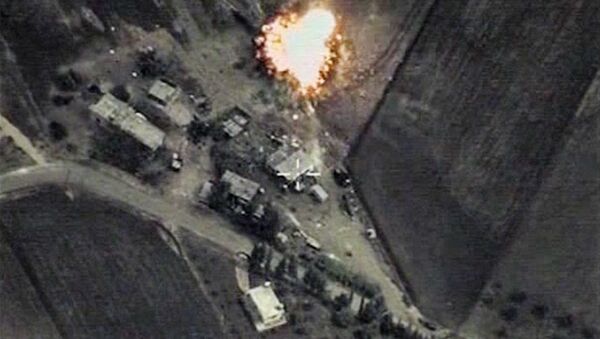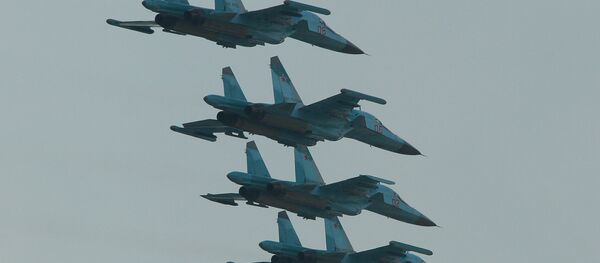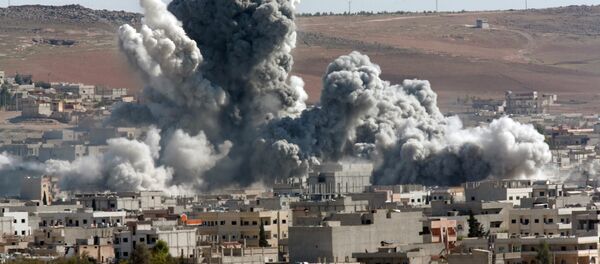"To me, it was representative of what you’d expect from dumb bombs, being dropped from airplanes at medium altitudes, which is not that impressive," Lt. Gen. Robert P. Otto, the Air Force’s deputy chief of staff for intelligence, surveillance, and reconnaissance, told reporters on Thursday.
He was referring to the Russian airstrikes carried out in Syria since Wednesday, which have successfully leveled multiple installations belonging to the self-proclaimed Islamic State terrorist group.
"I think precision matters," he said. "If they approach this with indiscriminate bombing, then I think it’s going to create second or third effects for them."
But no matter how the Pentagon tries to portray the situation on the ground, videos released by the Russian Defense Ministry shows just how accurate the Russian air group’s precision strikes really are.
"Throughout the day, the Russian air group continued pinpointed strikes on Islamic State positions in Syria," Defense Ministry spokesman Maj. Gen. Igor Konashenkov said in a statement on Friday. "Su-34, Su-24M and Su-25 jets carried out 14 combat missions, conducting six airstrikes."
Those strikes were conducted with high-precision bombs, hitting an ISIL fortified bunker in the Hama province.
"Objective monitoring confirmed that one of the bombs destroyed a command post and its infrastructure with a direct hit."
Western media has also published unfounded reports that an alleged lack of precision has led to civilian casualties. The Kremlin has called these allegations part of an "information war" aimed at discrediting Moscow’s role in the conflict.
"As for any information in the media on the civilians suffering, we were ready for such information attacks," Russian President Vladimir Putin said at a meeting of the Russian Council for Civil Society and Human Rights on Thursday.
"I draw your attention to the fact that the first reports on civilian casualties emerged before our planes even left the ground."
US criticism of Russia’s supposed use of "dumb bombs" is especially baffling given the Pentagon’s own lackluster track record.
"Our approach has been to be very cautious with the application of force," Otto said. "If at the end of the day you inadvertently kill innocent men, women and children, then there’s a backlash from that. And so we might kill three, and create 10 terrorists."
Yet throughout America’s air campaigns in the Middle East, drone strikes have killed thousands of unintended victims. Human rights group Reprieve released an analysis last November which found that in the process of targeting just 41 men, US drone strikes killed 1,147 people.
An article from the New York Times in April reported that the US is often unsure of who will be affected by drone strikes.
The paper quoted Micah Zenko, a scholar at the Council on Foreign Relations as saying that the trend "highlights what we’ve sort of known: that most individuals killed are not on a kill list, and the government does not know their names."
Yet, it is Russian "dumb bombs" which should be feared.
"Speaking just for myself," Otto said, "I have a low level of trust with the Russians."





